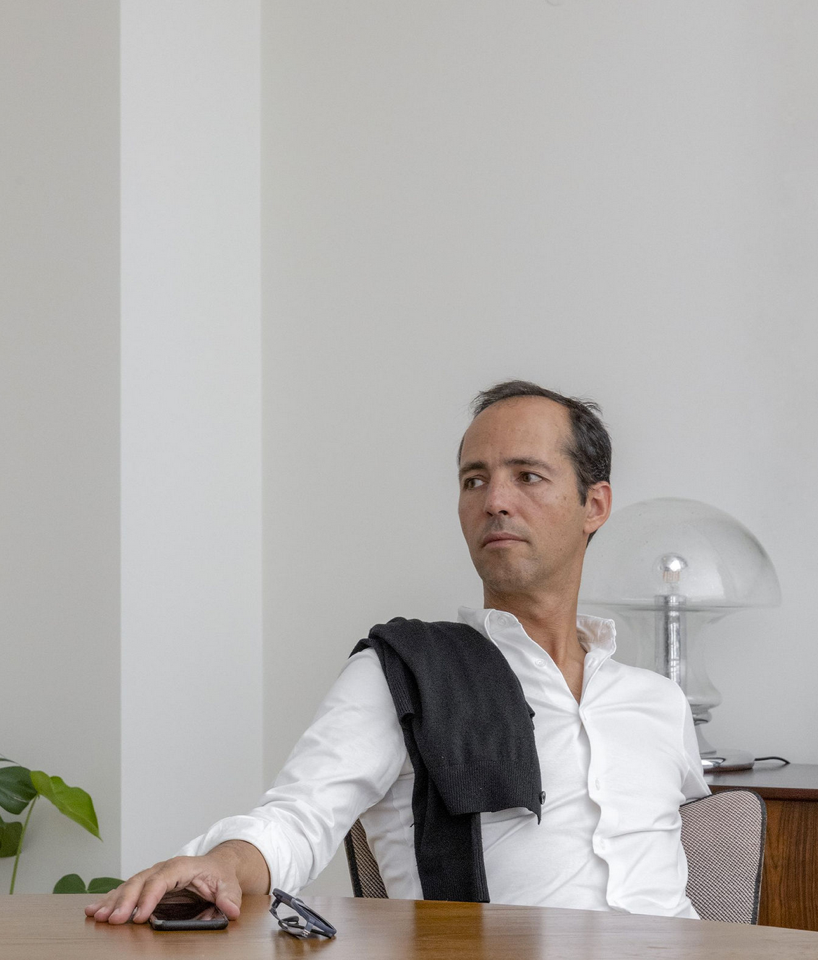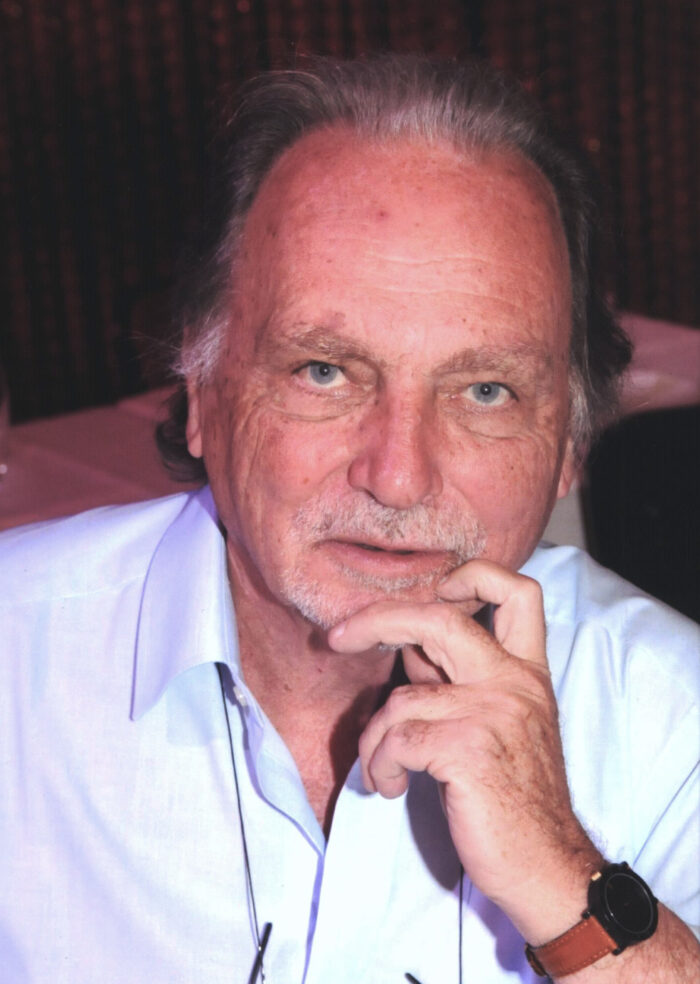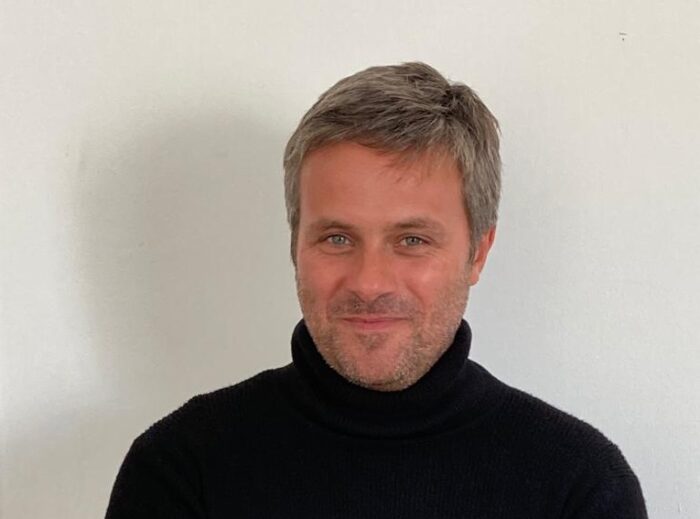A conversation with Arch. Luis Pereira Miguel

A conversation with Arch. Luis Pereira Miguel
‘More and more, when I see other works, which I like, of other colleagues, I feel great respect. It is not easy to do well’
Why did you choose architecture?
I chose to be an architect with 11 or 12 years. It was an unconscious choice. I had access for some years to the studio of the master sculptor Soares Branco, in Coruchéus, near my parents’ house in Alvalade. I spent Saturday mornings there watching busts, medals, playing with clay and drawing. I loved it, and it made me grow the idea of being an artist or architect. Maybe because I was fascinated by the architecture of the space and the way the light entered the nr.1 studio.
What were the greatest teachings of the architects with whom you starter working?
I started to work during the course, in the 3rd year, at the studio of Architect Eduardo Trigo de Sousa, who welcomed me and taught me the bases of the architect’s work. He was a person with a big heart, very kind and with a great culture. He talked a lot about his life stories, past projects, collaborations with Conceição Silva, Vitor Figueiredo… He taught me how to treat others kindly. After the course I worked for Manuel Graça Dias and Egas José Vieira’s Contemporânea atelier for a few years. We had a good environment in the atelier and interesting projects like Margueira or Teatro Azul. It was a time of great experimentation.
What do you look for in each project?
Nowadays I look for a clear understanding of all the phases of a project, anticipate problems and respond in the right way to each specific challenge. I try to follow my instincts more and more, let myself be carried away without great aesthetic/formalistic self-criticism. Finally, I want to do simple things, which are neither expensive nor extremely difficult. I think this is the great challenge of the studio, both in operation and production: to simplify.
How did PM-ARQ come about?
It was born 15 years ago in a curious way. I was working with other two colleagues, on tenders and small projects. We had some projection in magazines and on the internet. They already had a company and I thought that the logical step was to be part of it and to advance together. They didn’t want to and I created my own company. They don’t exist anymore and I have a sustainable practice.
What are the ideals of the studio and what makes you different?
The studio is small, between seven and ten people. We do a little bit of everything and that’s a great advantage. I learned how to be an architect in this way, to change the scale, to perceive the logic of the challenges and to give everything in each thing. This commitment to the project is our big difference. We have many ideas, but it’s not easy to materialize them. More and more, when I see other works, that I like, from other colleagues, I feel great respect. It is not easy to do well, it demands a lot from everyone involved and a constant fight with bureaucracy.
PM-ARQ has won several tenders. What brought you these recognitions?
There was a phase in which we did many tenders, both national and international. At the beginning of our career, without orders from cousins or uncles, we were left with tenders. At a certain time, we won an international tender with more than 700 participants for the Benetton group. For some years we designed stores for Benetton and Sisley in Italy and Russia. In the end, they weren’t built but other opportunities came up as conferences, juries, lectures and events.
What are the main challenges and obstacles for national architecture?
There are two major challenges for our area and one major obstacle. The challenges are the increasing technology, both BIM and the digital architecture publishing platforms, and the speed of all these phenomena. The second will be the growing environmental concern with energy sources, resources and raw materials. There is still no way to work in this environment and everything is very much the result of separate legislation. The obstacle is the bureaucracy of everything and in everything. I include in this the immense and constantly changing legislation. Those who work with licensing know what I am talking about. It’s impossible to work in this environment that will delay us forever and kill our mental sanity.
Has the pandemic affected or made you rethink many things in your work?
Nobody can say that was not affected by the pandemic. However, we had prepared ourselves before to work remotely. The work did not stop either. It made me see that our profession still needs contact, exchange of ideas, a sheet of paper on a table with people writing or drafting. The future will be a balance of this. It’s good because it gives us a few days of concentration and a few days of communion.
What is the vision for the future of the studio?
I think that in the studio we would all like to have more time and serenity to do things but speed is one of the attributes of the modern world and it’s hard to oppose. My vision is of a place where I still feel like I want to get out of bed to work. It doesn’t matter if it’s to design a luxury enterprise or a fisherman’s hut.
This interview is part of the Artes & Letras Magazine #123, of October 2020
Partially automatic translation from portuguese: some expressions may differ from their actual meaning.
News & Interviews
GOA Bridge Intelligence presented in Copenhagen
Betar is at IABMAS24 to publicize the results of the innovation project developed with AI Read more
A conversation with Arch. Pedro Ferreira Pinto
'I am looking for an architecture with a minimalist aspect and without excesses of austerity that tries to respond to society's challenges. I try to introduce an idea of simplicity, elegance and culture. ’ Read more
A conversation with Arch. Steven Evans
'With all the people I've worked with, there's always been one thing in common: how easy it is to laugh. The affinities are workable, but without laughing, it is difficult to be an architect.' Read more




